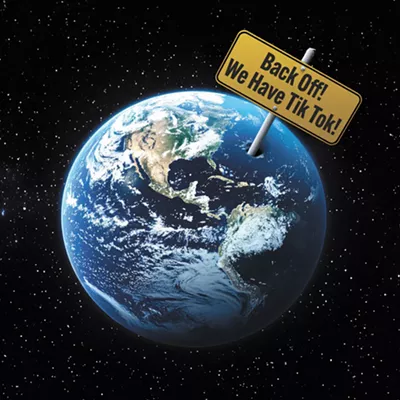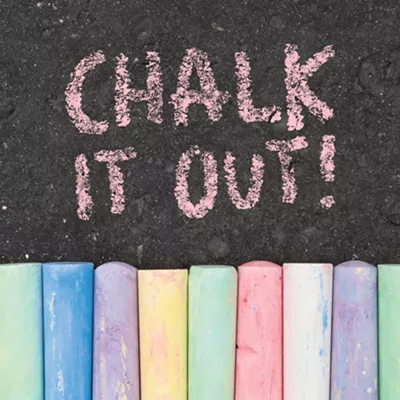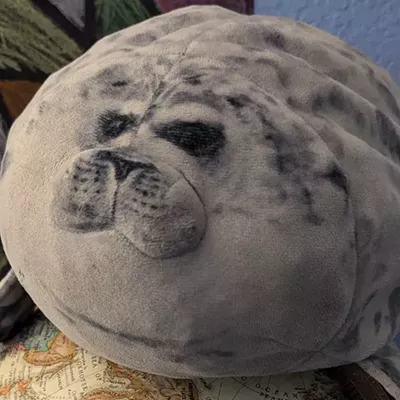
Just after sunrise on June 7, my friend Caitlin and I stood in the rain in Prague's Old Town Square, soggy and exhausted in our pajamas, alone except for a couple tipsy German dudes, and watched the famous Astronomical Clock chime 5 am.
I'd arrived in Prague in May to teach a university class, with just two weeks' notice — an unexpected opportunity to revisit a city I adore, where I'd taught in 2023 but never expected to end up again. The moment at the Astronomical Clock was the culmination of the sort of odd morning that only happens when you advise college kids in a foreign city. As we headed back to our hotel, Caitlin and I laughed about how remarkable it was to be there, and I gushed about the strange beauty of the world.
Then, on our way to McDonald's to buy some crack-of-dawn french fries, we passed the mass of drunk tourists who hung out on the sidewalk outside the bar under our hotel. For three weeks, I'd listened to them screeching, dancing to songs that all had the same relentless beat. I saw the trash and vomit they left behind, along with crepe-paper confetti that city workers had to scrape off the cobblestones.
"I hate them," I growled.
I spent the rest of the walk to McDonald's repeating that word I'd been taught as a child never to use about fellow humans (along with a bunch of other words that would've gotten me in big trouble as a kid). Later, Caitlin dramatically reenacted for our friends how rapidly my tune had changed.
Flailing between joy and rage might be my theme for summer 2025.
On a personal level, this summer has been pretty damn awesome: those surprise three weeks in the Czech Republic and Germany with Caitlin and our lovely students, followed by a vacation on Kauai with my husband to celebrate my 40th birthday and our 20th anniversary.
But then there's everything else.
I'd been struggling to address that dissonance and the attached feelings (Look at you, prancing across gorgeous European cities and luxurious islands while the world burns, you privileged American jackass!), mostly choosing avoidance.
In Kauai's Limahuli Garden and Preserve, as my husband and I admired an lula, a Seussian marvel of a plant that is likely extinct from its native Kauai cliffs, the emotion I needed hit me: grief.
Grief is sadness infused with love. It's feeling the loss of something — a plant, place, or person, an illusion or an idea — that mattered.
Grief has been simmering beneath a lot of my rage this summer. I was pissed at the partying barflies for indulging themselves while damaging a beautiful place and making other people suffer, and I'm pissed at the powerful people who treat the whole world like their personal sidewalk-outside-the-bar.
But grief had been hiding beneath my most treasured moments, too.
I got to appreciate the lula because of the brilliant botanists who saw the impending loss and responded, dangling from cliffs to rescue seeds and slowly cultivating plants.
"...grief had been hiding beneath my most treasured moments..."
My love for Prague expanded this year as I got to know the city better, including its dark past. On a tour of important sites from during and after World War II, our guide outlined the Czech Republic's brutal history of authoritarian takeovers and shared the trauma of learning at age 16, when the 1989 Velvet Revolution ended Communist Party rule, that everything she'd been taught was a lie. I saw how that grief fueled her to tell the truth about her country's history and to resist authoritarian narratives today.
I spent a few hours in Berlin on my way home, where I visited a garden built by two churches once separated by the Berlin Wall. It was lush and peaceful, dotted with kids playing and people talking (and one helpful guy who was patient with a clueless American who couldn't figure out the gate latch). A sign made it absolutely clear that this beauty was meant to acknowledge the site's former horror, not cover it up.
As I was off having adventures, my friends in the U.S. were sharing pictures of signs that popped up in national parks in June, asking visitors to report "any signs or other information that are negative about past or living Americans or that fail to emphasize the beauty, grandeur, and abundance of landscapes or other natural features."
I was reminded of Kurt Vonnegut's Slaughterhouse 5, which I read before visiting Dresden, Germany, with my students. Perhaps its most famous line is the imagined epitaph of protagonist Billy Pilgrim, who (like Vonnegut) witnessed the 1945 bombing of Dresden as a prisoner of war: "Everything was Beautiful and Nothing Hurt." It's ironic, wistful, or deluded, depending how you want to read it. But it's definitely not the one thing Billy says it is: the truth.
Without "negativity," I would have seen some nice things this summer, but they wouldn't have mattered. I wouldn't remember them, and I would do nothing in response to my encounter with them. In the long run, they'd be crepe-paper confetti: exciting for one moment, trash the next.
Grief is part of being human: It shouldn't be controversial to say that we need to acknowledge our losses and failures to fuel our joys. ♦
Tara Karr Roberts is a writer who lives in Moscow with her husband and sons. Her novel Wild and Distant Seas was published in January. Follow her on Bluesky and Instagram @tarabethidaho.


















